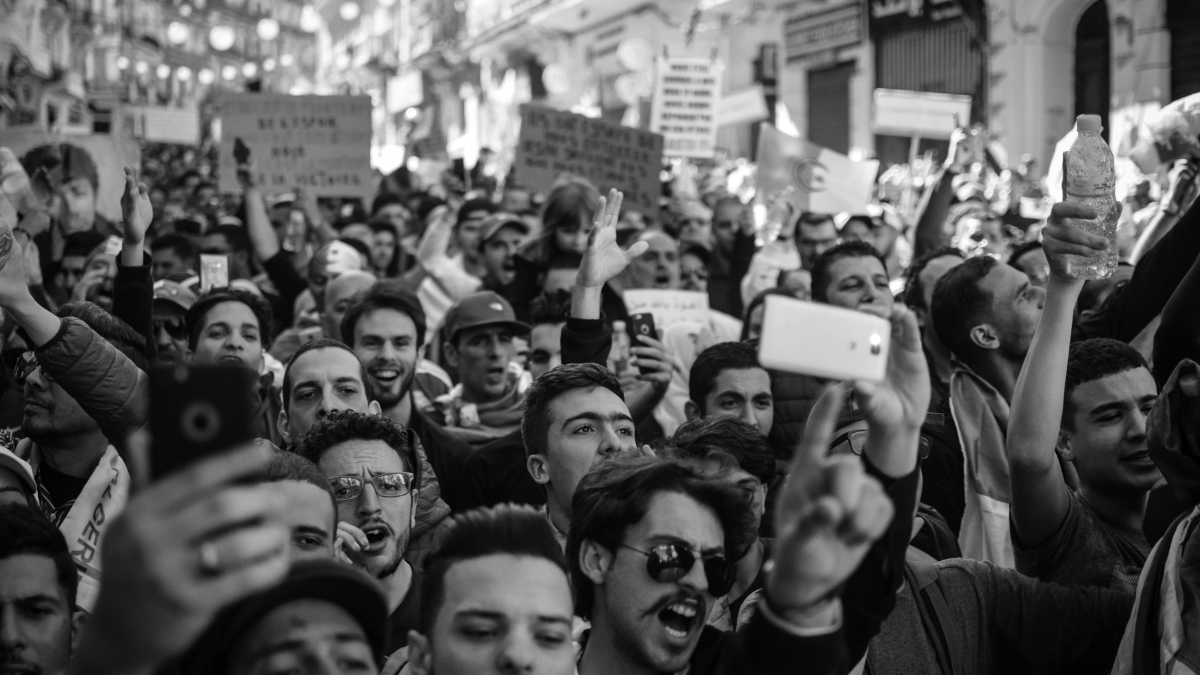In 2024, more than two billion people across 50 countries will head to the polls, marking the biggest election year in history. In a year where political news coverage is paramount, 2024 has already seen at least 980 media layoffs across the UK, Ireland, the US, and Canada since January, weakening the foundations of traditional media.
At the same time, a different type of news coverage is strengthening. On social media, people are turning to creators rather than journalists to get their news. A June 2023 report by Reuters revealed that 55% of TikTok users prefer to get their news from celebrities or influencers compared to 33% who get their news from mainstream media.
Some publishers are trying to capitalise on this shift by turning to social media personalities. At the end of last year, Reach, the publisher of the Mirror and Express newspapers, said it would hire social media influencers after axing 300 editorial staff. In a bid to target younger audiences, the company said it will employ non-professional journalists with a significant social media following around a specific subject matter. At the time, Jim Mullen, chief executive of Reach, told The Telegraph: ‘They don’t like me using the word influencers in here, but we have brought in people who have a following and what we do is put them through our formal training to make sure they can write things in the right way, make sure they know how to edit copy, make sure they don’t get into trouble.’
Politicians take note
US campaign groups are doing a similar thing. POLITICO reported that a Democratic super PAC is spending $1 million for its first-ever ‘creator’ program, enlisting over 150 influencers to post on social media during the 2024 election cycle. Both left and right-wing groups are targeting ‘micro-influencers’ — social media users who usually have hundreds to tens of thousands of followers — to post political content to a typically younger audience.
Last December, the White House even hosted its first-ever influencer event, inviting content creators with a cumulative social media following of over 100 million followers. Kyle Tharp, author of the political digital insights newsletter FWIW, attended the event. According to Tharp, the First Lady welcomed the crew of influencers to the White House and told them: ‘You’re here because you all represent the changing way people receive news and information.’
Speaking to MediaCat, Deidre Sullivan, Senior Vice President at global insights consultancy Verve, said that social media and influencers will play a ‘huge’ role in the upcoming US election. ‘The Biden campaign is signalling with their courting of influencers that they understand media and younger people. They are taking a cue from brands and looking at audiences and potential voters more creatively.
Politicians are acting like brands, but they are also acting like influencers. During the Super Bowl, the Biden campaign launched the TikTok account @bidenhq, despite the app being banned on most US government devices due to national security concerns. In the launch video, captioned ‘lol hey guys’, Biden was quizzed about his preferences for the Super Bowl. He even made light of a right-wing conspiracy theory claiming that the relationship between Taylor Swift and Kansas City Chiefs star Travis Kelce was part of a plot to rig the NFL’s championship game and help get Biden re-elected this November.
Sullivan says there’s a massive opportunity to use this digital strategy to reach untapped audiences who have never voted before. ‘I think there’s a massive opportunity to tap into those people through influencers and creators. It is about emotion and about connecting through humour and in unexpected ways. It is a brand new marketplace,’ she said.
On home soil, The Times recently reported that The Home Office will pay celebrities and social media personalities in countries with a large amount of illegal migration to the UK to post videos to TikTok, urging migrants not to cross the Channel in small boats. The social media personalities will allegedly be paid thousands of pounds to share videos discussing new immigration laws, including the threat of deportation to Rwanda.
Around the world
In other parts of the world, having an online presence and partnering with influencers as a politician is not new. India’s Prime Minister Narendra Modi has even been hailed as ‘India’s influencer-in-chief.’ In an interview with Rest of World, Joyojeet Pal, who studies the role of technology in democracy and labor at the University of Michigan, said: ‘Modi’s use of social media will be the playbook for politicians in various parts of the world — he is the apex predator of the social media food chain.’ He continued, ‘He’s not just on Twitter, Instagram, and LinkedIn; he has over 100 playlists on YouTube. There was a time he could make social media celebs salute on demand now, he doesn’t even have to try because it is part of their ritual.’
Indian politicians are also no strangers to using social media influencers throughout their campaigns. Last year, five senior union ministers gave interviews to two prominent YouTube content creators, tapping into a younger audience that prefers YouTube over traditional media outlets. However, concerns about this growing trend of politicians giving interviews to YouTubers instead of traditional journalists are growing as influencers are not obliged to follow the conventional rules of journalism.
Despite concerns, Sullivan said there are massive pros to utilising influencers during election campaigns. ‘If I were running a campaign, I would definitely want to get some smart people who understand influencer marketing and creators around me to figure out how to do it. Because you can create a storm and create a positive storm very, very quickly and get in front of people who may not ever have voted before.’
Featured image: Amine Misouri / Pexels

